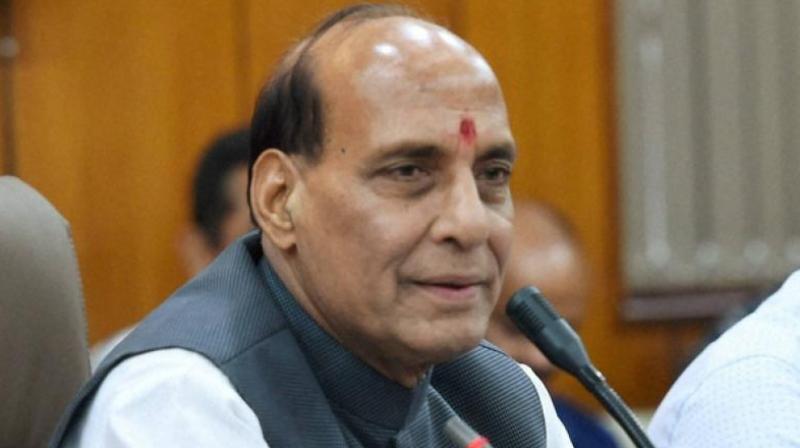Chakma, Hajong refugees to get Indian citizenship
Rijiju said a middle ground was being worked out in the wake of a 2015 Supreme Court directive.

New Delhi: The Centre, on Wednesday decided to grant citizenship to all Chakma and Hajong refugees, who largely live in the Northeast. However, it has assured that it will make sure that the rights of indigenous people living in the region would not be affected in any way. The decision was taken during a high-level meeting chaired by home minister Rajnath Singh on Wednesday and was also attended by NSA Ajit Doval, Arunachal Pradesh chief minister Pema Khandu, minister of state for home Kiren Rijiju and other senior home ministry officials.
Following the meeting, Mr Rijiju said a middle ground was being worked out in the wake of a 2015 Supreme Court directive. “While we have to honour the Supreme Court order for Chakmas and Hanjong refugees who are settled in Arunachal Pradesh since 1964, we will ensure that scheduled tribe status and other rights of indigenous people living in the area are not diluted in any way,” he said. The government is likely to file a fresh petition in the Supreme Court soon informing it about the decision.
The move comes close on the heels of the government’s proposal to deport illegal Rohingya Muslim migrants who entered India following persecution in Maynmar, a move which has been strongly criticised by the UN human rights chief Zeid Ra’ad al-Hussein.
Organisations in Arunachal Pradesh have opposed citizenship to the Chakma and Hajong refugees on the grounds that it would alter the state’s demography. The Centre has said that it will try and keep the balance by making sure the refugees don’t get scheduled tribe status or other rights like land ownership. But these refugees are likely to be granted “inner line permits” required for non-locals in Arunachal Pradesh to travel and work.
Mr Rijiju blamed the Congress for the current refugee crisis saying that the then government had settled them in Arunachal Pradesh without any consultations with the local population. The minister said that Congress had done a great injustice to the local population and now the government was left trying to do the balancing act.
Both Chakmas and Hajongs are originally from Chittagong hill tracts in erstwhile East Pakistan and were forced to leave due to religious persecution and because the area was submerged by the Kaptai dam project in the 1960s. As of now there are an estimated one lakh such refugees in the Northeast, with a majority of them settled in Arunachal Pradesh.
Meanwhile, Mr Rijiju criticised attempts to label India as a “villain” on the Rohingya controversy as these illegal migrants have been described as a potential security threat. Taking to micro-blogging site Twitter, Mr Rijiju said, “This chorus of branding India as a villain on the Rohingya issue is a
calibrated design to tarnish India’s image. It (such statements) undermines India’s security.”
Earlier, the minister had claimed that India had absorbed the maximum number of refugees anywhere in the world. Mr Rijiju had also clarified a few days ago that one should not demonise India on the issue as it would be following due process of laws on deportation rather than “throwing the illegal migrants into an ocean or shooting them down”.
The home minister has already asked the state governments to identify the illegal Rohingya migrants branding them a “burden on the country’s limited resources”. India has maintained that they also pose a potential security hazard.
